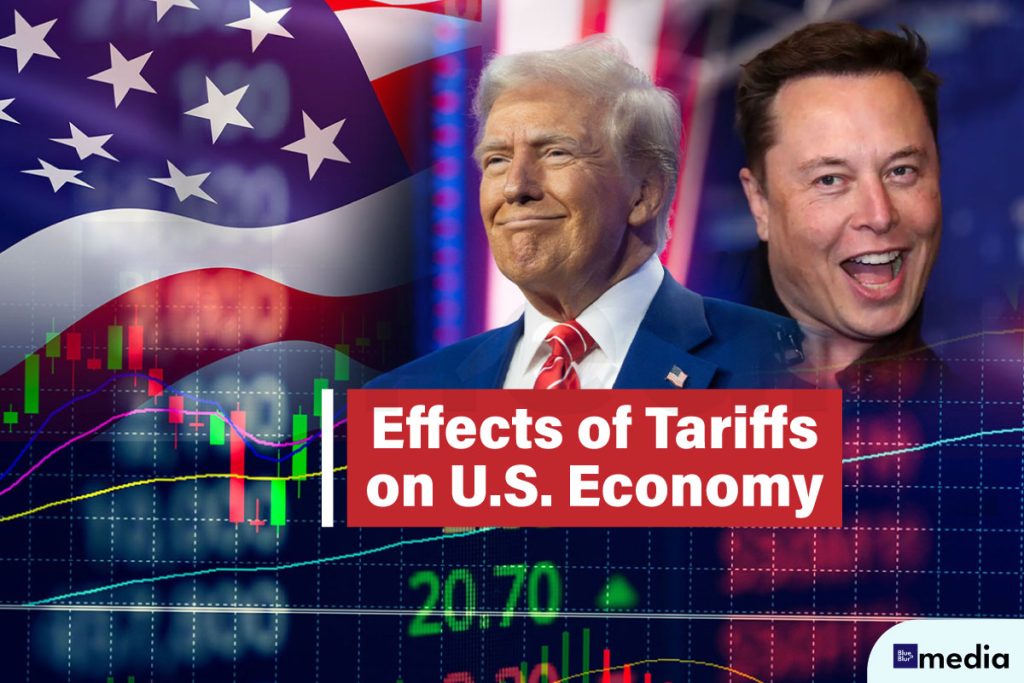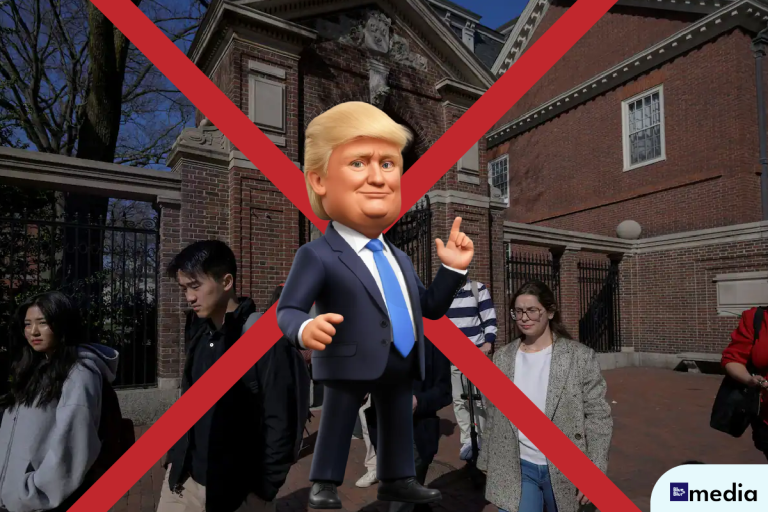Effects of Tariffs on U.S. Economy: How Do Tariffs Impact the U.S. Economy in 2025?

The Rose Garden Proclamation: A Seismic Shift in U.S. Trade Policy
President Donald Trump’s recent “Rose Garden Proclamation” has sent shockwaves through global markets. The sweeping tariff policy imposes a 10% tax on imports from nearly every country worldwide. The effects of tariffs on U.S. economy became immediately apparent as Wall Street experienced its worst single-day decline since the 2020 COVID pandemic.
Immediate Market Reaction: Effect of Tariffs on U.S. Economy
All three major indexes responded dramatically to these new trade policies. The S&P 500 fell by approximately 4.85%, shedding an astonishing $2.4 trillion in market capitalization in just one day.
The tech-heavy Nasdaq Composite tumbled even further, dropping nearly 6% as investors assessed how tariffs impact the U.S. economy moving forward.
The Dow Jones Industrial Average wasn’t immune either, falling by about 3.98% as industrial stocks took a hit from the tariff news.
Tech Giants Feel the Pain
Major technology companies that have powered recent market growth now face substantial challenges. Apple shares dropped significantly as investors calculated the impact of Chinese tariffs on iPhone production.
Analysts estimate that an iPhone manufactured in China could see price increases up to $2,300 once these tariffs take effect.
Amazon and Nvidia also experienced sharp declines as supply chain concerns mounted among investors.
Banking and Energy Sectors Under Pressure
The effects of tariffs on U.S. economy extend to America’s financial institutions. Major banks including Citigroup and Bank of America saw their shares tumble as economic uncertainty grew.
Energy companies like Exxon Mobil and Chevron faced a double whammy. Global oil prices dropped nearly 6.8% in response to both OPEC’s production increase announcement and concerns about reduced global trade.
Brent crude oil prices have now fallen below $70 per barrel, while U.S. WTI oil trades under $67.
Global Response: Retaliation Begins
How tariffs impact the U.S. economy in 2025 will largely depend on international responses. The global community is already reacting to America’s aggressive trade stance.
China and the European Union have announced plans for retaliatory measures that could further disrupt global supply chains.
Canada has declared a 25% tariff on vehicle imports not covered by the U.S.-Canada-Mexico trade agreement.
Meanwhile, countries including South Korea, India, and Sri Lanka are seeking relief before the April 9 implementation date.
The Economic Gamble: Making America Wealthy Again?
President Trump’s stated goal for these tariffs is to “make America a wealthy nation again.” However, economic analysts are raising serious concerns about the effects of tariffs on U.S. economy.
Many experts warn these policies could escalate into a full-scale trade war and potentially trigger a global economic recession.
The immediate flight of investors from stocks to safer assets like government bonds and gold signals growing anxiety about how tariffs impact the U.S. economy in 2025.
Looking Ahead: Economic Uncertainty
These sweeping tariffs represent a dramatic departure from the pro-business policies Trump championed just months ago that had driven record stock market growth.
Investors now face a new economic reality filled with uncertainty about how international trading partners will respond and how supply chains will adapt.
Economic analysts caution that the effects of tariffs on U.S. economy will likely include sharp fluctuations in global markets in the coming days as the full implications of these policies become clearer.
The April 9 implementation date looms large as countries and companies scramble to prepare for this new era of increased trade barriers.



